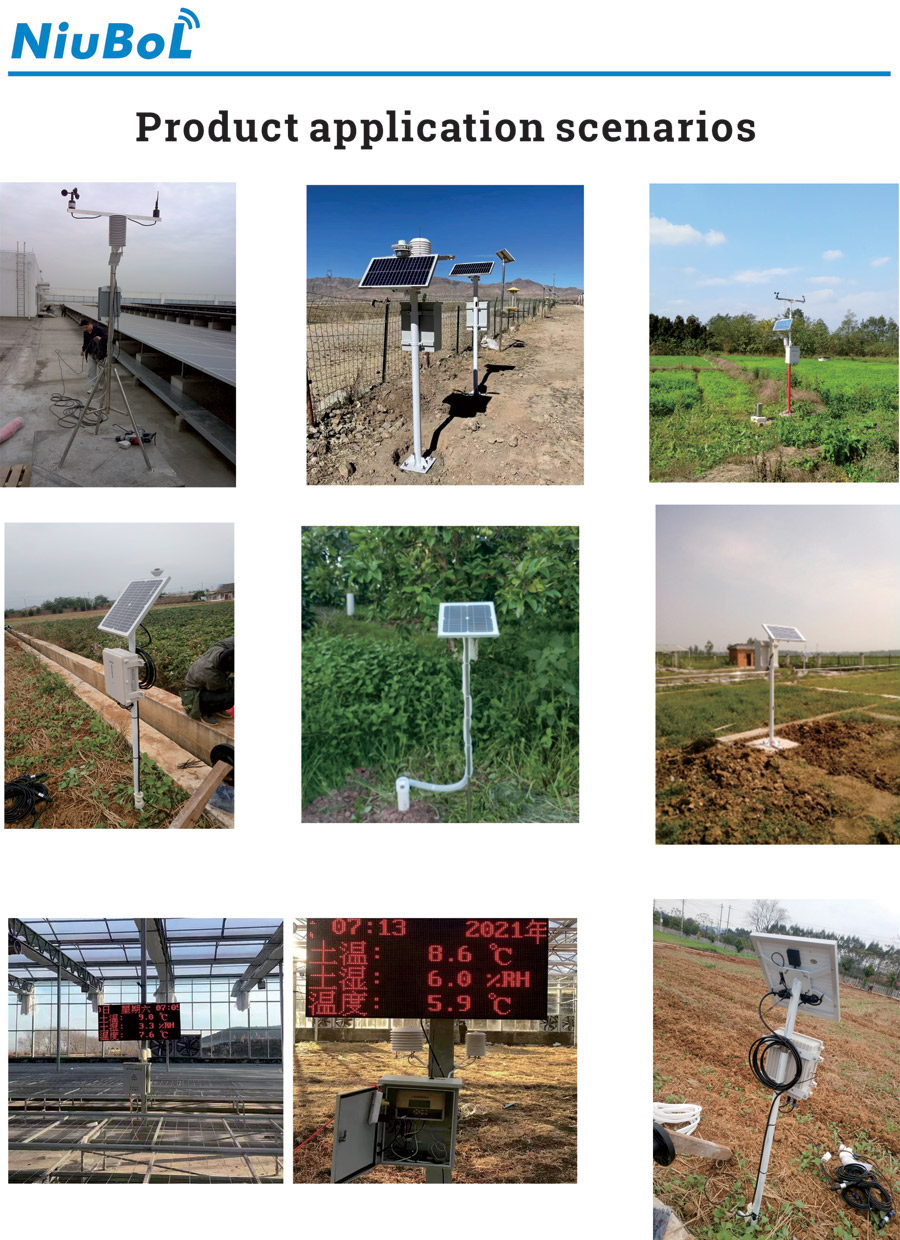

— Blogs —
—Products—
 Consumer hotline +8618073152920
Consumer hotline +8618073152920 WhatsApp:+8615367865107
Address:Room 102, District D, Houhu Industrial Park, Yuelu District, Changsha City, Hunan Province, China
Product knowledge
Time:2024-01-23 14:11:37 Popularity:1686
Precision agriculture is a mode of agricultural production that utilizes advanced technology and information technology to achieve high efficiency, intelligence, and sustainability through meticulous monitoring and management of farmland, crops, and the farming environment. Precision agriculture relies on global positioning system (GPS), remote sensing technology, drones, sensors, the Internet and other technologies to collect and analyze real-time data on soil, meteorology, crop growth and other data, so as to accurately regulate the irrigation, fertilization, plant protection and breeding of farmland.
The advantage of precision agriculture is to improve the efficiency and quality of agricultural production and reduce resource waste and environmental pollution. Through precise fertilization and plant protection, fertilizers and pesticides can be utilized to the maximum extent possible, reducing the amount used and the risk of contamination of soil and water sources. At the same time, precision agriculture can also improve the quality and safety of agricultural products, increase farmers' income and promote sustainable rural development.
Precision agriculture is important in addressing global food security, sustainable agricultural development, and rural poverty. Weather stations play a key role in precision agriculture. By providing accurate weather data and early warning information, weather stations can help farmers make scientific decisions, optimize farm management, and improve the efficiency and quality of agricultural production.
1. Providing accurate meteorological data: weather stations can monitor and record meteorological parameters such as temperature, humidity, wind speed, rainfall and other meteorological parameters in real time, providing accurate meteorological data. These data are the basis for precision agriculture decision-making, and farmers can carry out reasonable farming management such as irrigation, fertilization and pest control according to the weather data.
2. Aiding decision-making: By analyzing meteorological data, weather stations can help farmers make more accurate decisions. For example, by predicting rainfall based on meteorological data, farmers can rationally arrange irrigation time to avoid over-irrigation or irrigation on rainy days; based on data such as temperature and humidity, farmers can adjust the fertilization plan to avoid excessive wastage or insufficiency of nutrients.
3. Realize refined management: The meteorological data provided by weather stations can help farmers carry out refined management. By knowing the current weather conditions, farmers can precisely control the amount of irrigation and fertilization according to the needs of different crops, improve resource utilization efficiency, reduce costs, and reduce the load on the environment.
4. Provide weather warning: Weather stations can monitor weather changes in a timely manner and provide weather warning information. When extreme weather or natural disasters threaten crops, weather stations can send early warning information to farmers to help them take appropriate protective measures and reduce losses.
5. Optimize irrigation management: weather stations can help farmers make reasonable irrigation plans by monitoring and recording parameters such as soil moisture content and evaporation. According to the needs of different crops and real-time meteorological data, the amount and duration of irrigation can be accurately controlled to avoid waste of water and deterioration of the soil environment.
6. Helping farmers choose crop varieties: Different crops have different adaptability to climate and growing conditions, and the weather station can provide farmers with an assessment of the suitability of different crops under the current meteorological conditions. Meanwhile, through long-term meteorological data analysis, farmers can choose crop varieties that are adapted to local climatic characteristics and improve crop yield and quality.
7. Reducing the occurrence of pests and diseases: The weather stations can help farmers predict the time and extent of the occurrence of pests and diseases and provide corresponding prevention and control suggestions. Meanwhile, through real-time monitoring of meteorological data, farmers can identify and deal with pests and diseases in a timely manner, reducing the number of pests, lowering the use of pesticides, and improving the quality and safety of agricultural products.

8. Supporting agricultural insurance: weather stations can provide accurate weather data to provide a scientific basis for agricultural insurance. When natural disasters and other force majeure factors occur, insurance companies can determine the scope of loss and compensation amount based on meteorological data to help farmers cope with economic risks.
9. Optimize resource allocation: According to weather conditions, farmers can reasonably allocate the operating time and location of agricultural machinery and equipment to improve agricultural production efficiency. For example, plowing when the land is wet after rain can reduce the wear and tear of farm equipment and energy consumption.
10. Quality control of agricultural products: Weather stations can monitor and record the growing environment of agricultural products, providing data support for the quality and safety of agricultural products. By ensuring the suitability of the growing environment, the quality and safety of agricultural products can be improved.

To sum up, the role of weather stations in precision agriculture is to provide real-time and accurate meteorological data to help farmers rationally arrange agricultural production activities, optimize resource allocation, and improve the efficiency of agricultural production and the quality and safety of agricultural products. Through these measures, weather stations have strongly promoted the development of precision agriculture.
Related recommendations
Sensors & Weather Stations Catalog
Agriculture Sensors and Weather Stations Catalog-NiuBoL.pdf
Weather Stations Catalog-NiuBoL.pdf
Related products
 Combined air temperature and relative humidity sensor
Combined air temperature and relative humidity sensor Soil Moisture Temperature sensor for irrigation
Soil Moisture Temperature sensor for irrigation Soil pH sensor RS485 soil Testing instrument soil ph meter for agriculture
Soil pH sensor RS485 soil Testing instrument soil ph meter for agriculture Wind Speed sensor Output Modbus/RS485/Analog/0-5V/4-20mA
Wind Speed sensor Output Modbus/RS485/Analog/0-5V/4-20mA Tipping bucket rain gauge for weather monitoring auto rainfall sensor RS485/Outdoor/stainless steel
Tipping bucket rain gauge for weather monitoring auto rainfall sensor RS485/Outdoor/stainless steel Pyranometer Solar Radiation Sensor 4-20mA/RS485
Pyranometer Solar Radiation Sensor 4-20mA/RS485
Screenshot, WhatsApp to identify the QR code
WhatsApp number:+8615367865107
(Click on WhatsApp to copy and add friends)
